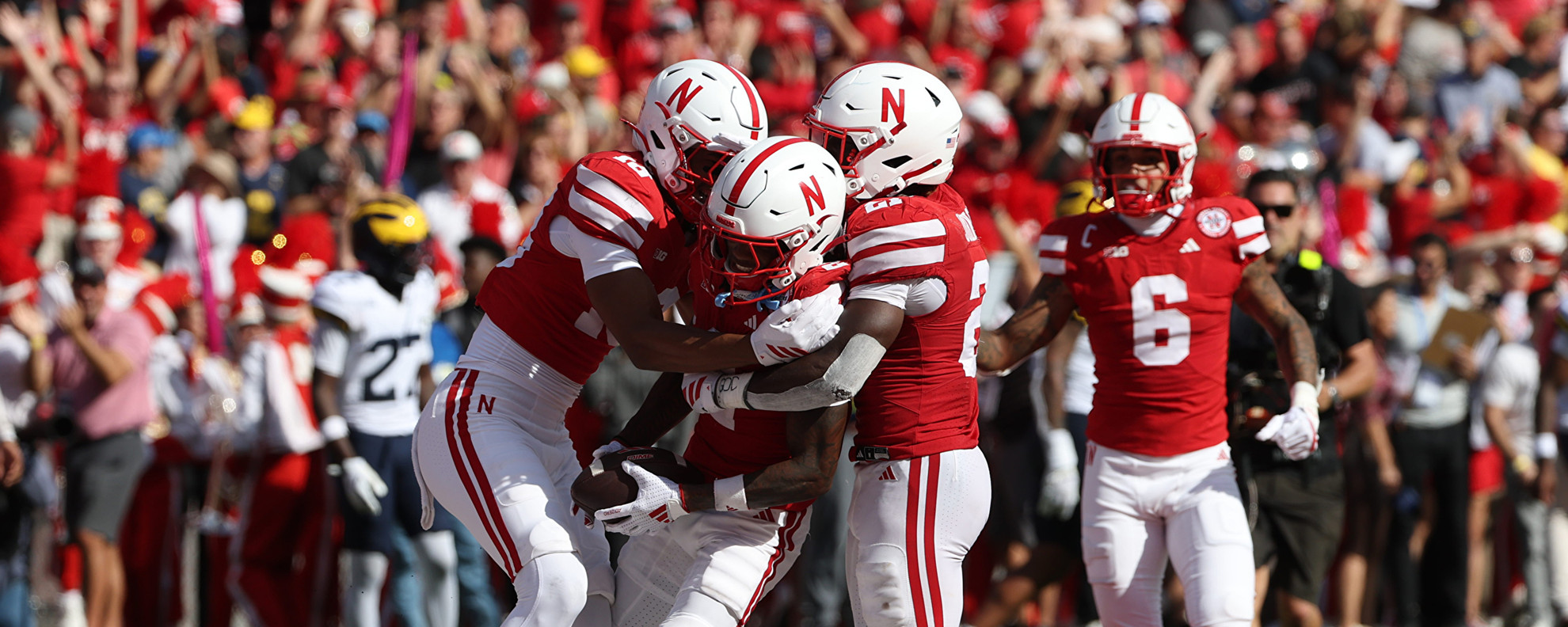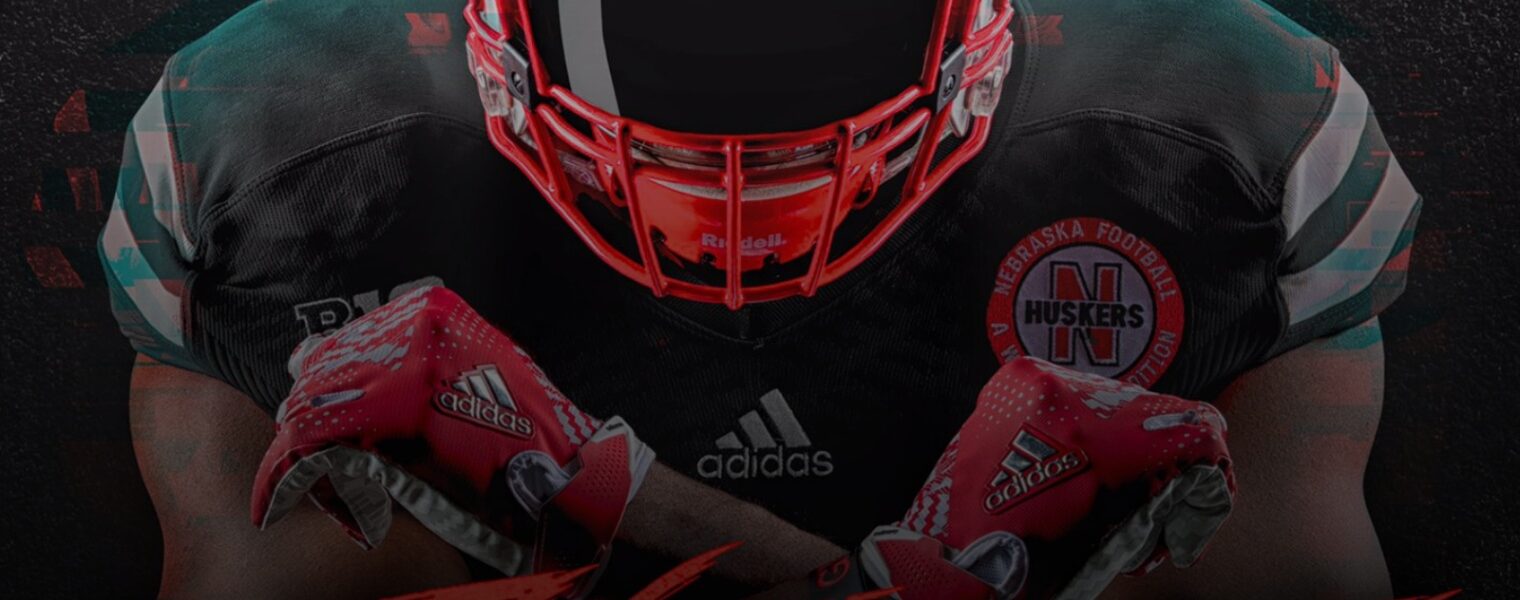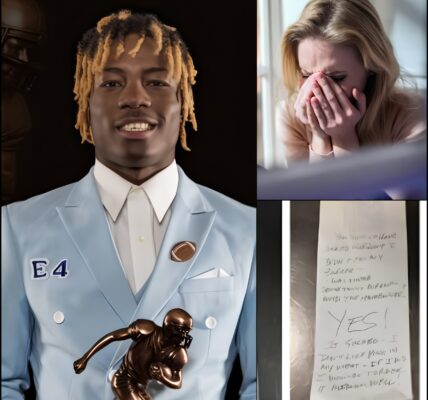The Blackshirts: More Than Just a Jersey at Nebraska
At the University of Nebraska, football isn’t just a sport — it’s a language, a religion, and a way of life. And within that deeply rooted tradition, one symbol stands above the rest: the Blackshirt. For generations, wearing the black practice jersey on defense hasn’t just been about talent. It’s about grit, leadership, and living up to the weight of those who came before.
But in recent weeks, rumors have swirled across message boards and radio waves: is the Blackshirt tradition in danger?
As fans speculate and emotions run high, one thing becomes clear — the Blackshirt is more than fabric. It’s identity.

The Birth of a Legacy
The Blackshirts began not with a headline, but with a practical choice. In the 1960s, Nebraska’s defensive starters began wearing black practice jerseys to distinguish themselves from the offensive unit. But over time, something deeper took hold. The black jersey began to symbolize not just who started — but who set the tone.
Being handed a Blackshirt became a rite of passage. It wasn’t automatic. It wasn’t handed out like candy. You had to earn it. And if you stopped earning it, you could lose it just as quickly.
That expectation became a cultural cornerstone for Nebraska football. Over the years, defenders like Grant Wistrom, Ndamukong Suh, and Trev Alberts wore it with pride — and left behind a legacy of dominance that defined entire eras of Husker football.
The Honor System
In a college football world increasingly dominated by personal brands, NIL deals, and social media clout, Nebraska has held fast to the core values represented by the Blackshirt.
Players don’t just get the jersey because they’re listed first on the depth chart. Coaches look for leadership, attitude, consistency, and commitment. A player might have all the athletic tools in the world, but if they don’t lead in the locker room or show up when it counts — they might not get it.
When a Blackshirt is awarded, it’s often done quietly. A jersey hung in a locker. A message understood: “We trust you.” And when it’s taken away, that silence can be even louder.

A Fanbase That Bleeds for the Black
What makes the Blackshirt tradition even more unique is how deeply the fanbase connects to it.
In Lincoln, defense isn’t just one phase of the game — it’s a badge of identity. Husker fans know the names of the Blackshirts as well as the quarterbacks. They chant for them. They expect toughness, accountability, and pride.
So when whispers surfaced this season suggesting the coaching staff might “reimagine” or even retire the tradition, emotions ran hot. The idea of moving away from the Blackshirts — or watering it down — was seen by many as sacrilege.
Some speculated that the staff was considering removing the tradition as a way to reset expectations. Others believed it was simply a misunderstanding. Either way, fans took to social media, message boards, and local talk shows to voice their frustration — and their fear.
Player Perspective: Earned, Not Given
For the players, the Blackshirt still means everything.
Freshmen come into the program hearing stories about it. Transfers talk about how the culture at Nebraska is unlike anywhere else. Veterans who’ve worn the jersey understand the pressure — and the privilege — that comes with it.
When a player earns it, it often becomes one of their most treasured moments. Some have even said that earning a Blackshirt meant more than starting a game.
For many, it becomes motivation: to stay focused, to lead with integrity, to play through pain. The jersey, after all, doesn’t just go to the biggest hitter or the guy with the most tackles — it goes to the one who embodies the standard.
The Tunnel Walk Rumors
Adding fuel to the fire is what fans are now calling the “Tunnel Walk mystery.”
Every home game at Memorial Stadium begins with one of the most iconic entrances in college football. Music blares. The crowd roars. The team walks down the tunnel, side by side — united.
But according to insiders, something different is coming. Whispers say a group of former Blackshirts may join the walk this week. Others say it’s a moment designed to reaffirm the tradition — to remind everyone what it stands for, and why it still matters.
No one knows for sure. But for a program steeped in symbolism, it’s enough to have everyone watching closely.

Tradition vs. Transition
The debate over the Blackshirts isn’t just about one jersey. It’s about the tension between past and future — between honoring legacy and adapting to new eras.
Nebraska is in the middle of a rebuild, with new leadership, new expectations, and a new generation of athletes. Some say it’s time to modernize, to let go of old labels and start fresh.
But for most fans, letting go of the Blackshirts isn’t evolution — it’s erasure.
To them, the Blackshirt doesn’t hold the team back — it lifts it up. It gives players something to strive for. It sets a tone. It demands more.
Why It Still Matters
In a world where traditions are fading fast, Nebraska’s Blackshirts remain one of the last true symbols of what college football once was — and could still be.
It’s not about flash. It’s not about ego. It’s about effort. Brotherhood. Accountability.
The Blackshirt reminds every defender that they are part of something bigger. That every snap is a chance to protect the standard. That when they put on that jersey, they carry not just their name — but the names of every Blackshirt who came before.

Looking Ahead
Whether the rumors are true or not, one thing is clear: Husker Nation still cares — deeply. And that passion is what makes Nebraska different.
If the Blackshirts are here to stay, players must continue to honor it.
If the tradition is in danger, the fanbase will defend it.
But either way, the black jersey isn’t going quietly.
Because in Nebraska, football isn’t just played. It’s passed down. It’s protected. And some things — like the Blackshirts — are too sacred to lose.




